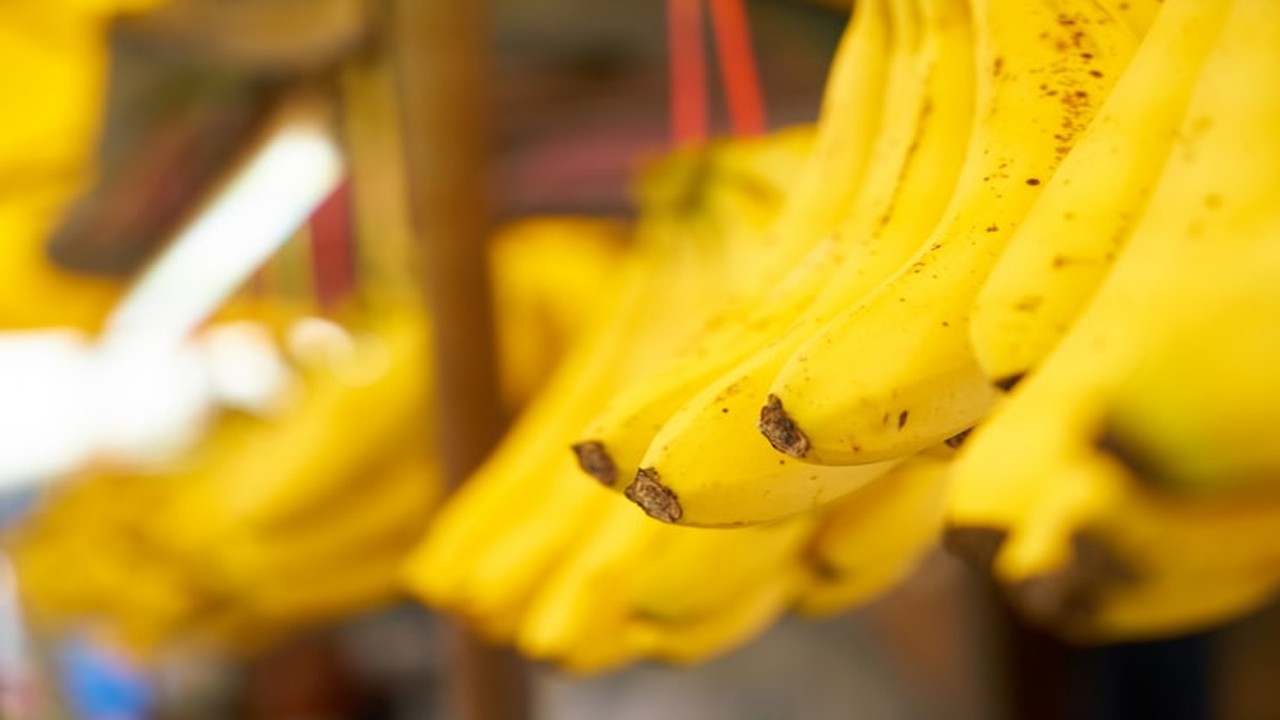 In a groundbreaking move, Fairtrade has announced an increase in the Minimum Price for bananas, signaling a significant step towards supporting decent livelihoods for farmers and workers. This update, unveiled at Fruit Attraction 2025 in Madrid, will impact over 37,000 individuals, with a notable focus on empowering women in the industry. By emphasizing fair pricing and sustainability, Fairtrade is not only reshaping the banana market but also championing a collaborative approach across the supply chain. Learn more about the transformative impact of these changes and the holistic initiatives driving sustainable practices in the sector.
In a groundbreaking move, Fairtrade has announced an increase in the Minimum Price for bananas, signaling a significant step towards supporting decent livelihoods for farmers and workers. This update, unveiled at Fruit Attraction 2025 in Madrid, will impact over 37,000 individuals, with a notable focus on empowering women in the industry. By emphasizing fair pricing and sustainability, Fairtrade is not only reshaping the banana market but also championing a collaborative approach across the supply chain. Learn more about the transformative impact of these changes and the holistic initiatives driving sustainable practices in the sector.
Fairtrade's Commitment to Decent Livelihoods
Fairtrade's recent announcement of an increase in the Minimum Price for bananas underscores its unwavering commitment to supporting decent livelihoods for farmers and workers in the industry. This strategic move, revealed at Fruit Attraction 2025 in Madrid, reflects Fairtrade's dedication to ensuring fair compensation and sustainable practices within the supply chain. By elevating the Minimum Price, Fairtrade is not only empowering over 37,000 individuals, with a significant focus on advancing opportunities for women, but also setting a precedent for ethical sourcing standards in the global market. This initiative aligns with Fairtrade's core mission of promoting equitable trade relationships and fostering economic stability for those involved in banana production.
Sustainable Practices in the Banana Sector
The shift towards sustainable practices in the banana sector is gaining momentum, with organizations like Fairtrade leading the charge. Through initiatives like the Sustainable Banana Program developed by the Latin American and Caribbean Network of Fairtrade Farmers and Workers (CLAC), tangible results are being achieved in terms of improving farming techniques, enhancing soil health, and bolstering climate resilience. By emphasizing the importance of efficient water use and environmental stewardship, Fairtrade is not only driving positive change within the industry but also encouraging commercial partners to embrace sustainable methodologies. This holistic approach to banana production not only benefits the environment but also contributes to the long-term viability of farming communities worldwide.
Consumer Perception and Market Dynamics
The dynamics of consumer perception play a pivotal role in shaping the market landscape for Fairtrade and other ethical sourcing initiatives. As highlighted by a 2025 Globescan study, there exists a discrepancy between consumers' perceived and actual expenditure on products like bananas. This insight underscores the potential for increased adoption of Fairtrade products, given the minimal impact on consumer spending. The willingness of retailers to adjust pricing without significant backlash further reinforces the notion that consumers are increasingly receptive to supporting initiatives that prioritize social and environmental responsibility. By leveraging this shift in consumer behavior, companies can align their strategies with ethical sourcing practices advocated by organizations like Fairtrade America.
Collaboration Across the Supply Chain
A key aspect of Fairtrade's approach to promoting sustainable livelihoods in the banana industry is fostering collaboration across the entire supply chain. By engaging consumers, commercial partners, farmers, and workers in a collective effort to drive positive change, Fairtrade is creating a framework for shared responsibility and mutual benefit. This collaborative model not only enhances transparency and traceability in the sourcing process but also strengthens relationships among stakeholders, ultimately leading to a more resilient and ethical supply chain. Through initiatives like the Sustainable Banana Offer, Fairtrade encourages all actors in the industry to play their part in advancing sustainable practices and ensuring fair compensation for those involved in banana production.
Economic Viability and Social Impact
The economic viability of banana production is intricately linked to the social impact generated within farming communities. Fairtrade's emphasis on fair pricing and sustainable agriculture practices not only supports the livelihoods of farmers and workers but also contributes to broader social development goals. By providing a platform for workers to access better wages and farmers to enhance their income, Fairtrade's initiatives pave the way for improved economic stability and social well-being. This dual focus on economic viability and social impact underscores the transformative potential of ethical sourcing practices championed by organizations like Fairtrade America, setting a new standard for responsible business conduct in the global marketplace.
Conclusion
As Fairtrade elevates the Minimum Price for bananas, the ripple effect extends far beyond market dynamics, resonating with a commitment to decent livelihoods, sustainable practices, and collaborative supply chains. This transformative move not only empowers thousands and champions gender equality but also sets a new standard for ethical sourcing globally. By embracing Fairtrade's initiatives, businesses can catalyze change, align with consumer values, and drive a more sustainable future for all stakeholders involved in banana production.